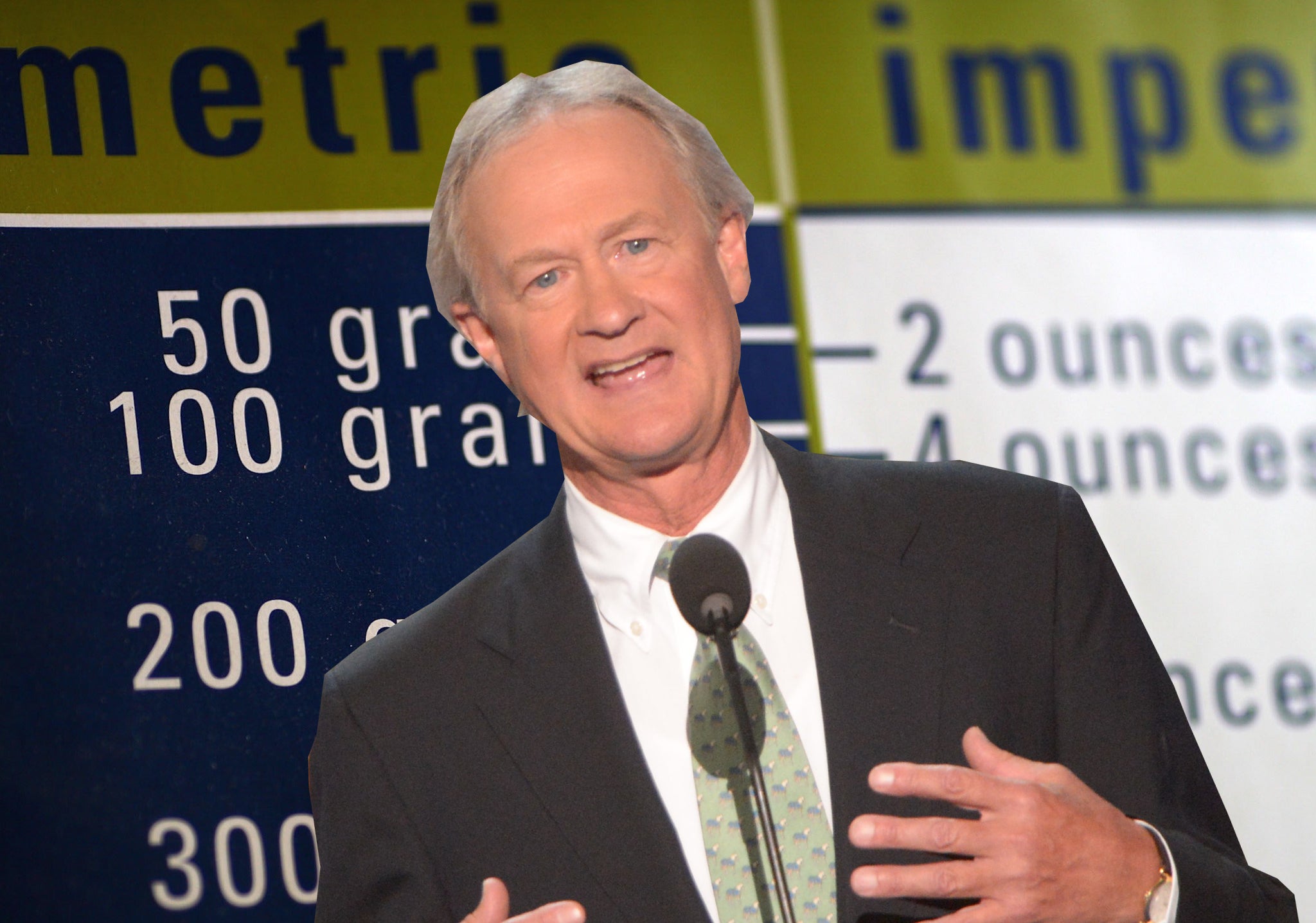Lincoln Chafee: Five ways the United States would benefit from adopting the metric system
The US is the only industrialised country in the world without the metric system

Your support helps us to tell the story
From reproductive rights to climate change to Big Tech, The Independent is on the ground when the story is developing. Whether it's investigating the financials of Elon Musk's pro-Trump PAC or producing our latest documentary, 'The A Word', which shines a light on the American women fighting for reproductive rights, we know how important it is to parse out the facts from the messaging.
At such a critical moment in US history, we need reporters on the ground. Your donation allows us to keep sending journalists to speak to both sides of the story.
The Independent is trusted by Americans across the entire political spectrum. And unlike many other quality news outlets, we choose not to lock Americans out of our reporting and analysis with paywalls. We believe quality journalism should be available to everyone, paid for by those who can afford it.
Your support makes all the difference.Lincoln Chaffee recently announced his bid for the 2016 presidential election with ambitions to adopt the metric system.
The former Rhode Island governor and ex-Republican told CNN that the country needs to work collectively and work with every nation around the world.
"This is just one piece, as I said, of becoming internationalist as a country and getting away from that unilateralist approach, that muscular approach to the world, that I don't think is working in our best interests," he said.
Here are 5.5 reasons the US should move on from being the only industrialised country in the world who doesn’t use the metric system.
1. US natives could easily compete for jobs in the global economy.
As the world's largest nations increase the push for globalisation, the US would join 95 per cent of the world in using the system. Only Myanmar, Liberia and the US have yet to adopt metric.
2. Children may be healthier and more effectively medicated.
According to a Pediatrics journal study, 40 percent of parents who participated measured incorrectly when giving receiving prescriptions measured in teaspoons and tablespoons for their children.
The official journal of the American Academy of Pediatrics said that 40 percent also read the prescription dosage wrong.
3. Units will be easier to manage and teach.
The US customary system includes: barrels, bushels, cubic feet, cubic inches, cubic yards, dry gallons, dry pints, dry quarts, fluid ounces, liquid pints, liquid quarts, oil barrels, pecks and US gallons.
The metric system includes: liters.
4. It’s easier to make conversions.
Conversion factors are decimal and simply need to be moved to the left or right for conversions. Following the decimal number system, metric units increase or decrease in size by multiples of 10.
5. Shopping measurements will be consistent.
The US already uses litres for soda, millimeters for condoms, grams for drugs and milligrams for caffiene. The list goes on but converting the primary system to metric would make the country consistent.
Join our commenting forum
Join thought-provoking conversations, follow other Independent readers and see their replies
Comments